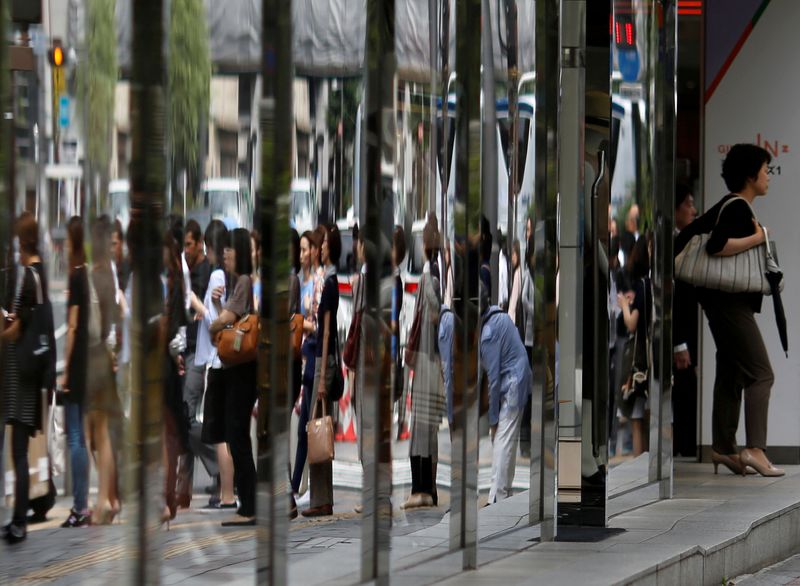TOKYO (Reuters) - Japan needs to closely watch downside economic risks from rapid commodity inflation caused by the war in Ukraine and its disruption to the global energy supplies, the government said in a monthly report on Friday.
The world's third-largest economy has yet to return to pre-pandemic levels as COVID-19 outbreaks and curbs hinder a consumption-led recovery, even before the recent surge in prices.
"As uncertainties around the situation in Ukraine loom, downside risks such as rising raw material prices, fluctuations in financial markets and supply constraints require full attention," the government said in its monthly report.
The report kept its main assessment of the economy unchanged from last month, saying its recovery was in progress although some vulnerabilities remained.
One such weakness was the household sector, with the report repeating last month's assessment of private consumption as having stalled, due to prolonged COVID-19 curbs on face-to-face services.
Authorities also said consumer prices in Japan were "moderately rising", having described them as "steady" over the past seven months' reports.
"We changed the description to the one that simply acknowledges recent price hikes, especially among food items," a government official told a media briefing before Prime Minister Fumio Kishida's cabinet approved the report.
Japan's core inflation hit a two-year-high of 0.6% in February, as more companies started to pass on costs to households.
Analysts and policymakers expect core inflation to approach 2% in April on rising energy costs and the waning effect of previous cellphone fee cuts.
In the context of recent spring wage talks and private-sector price forecasts, the report warned of inflation's potential damage to consumers by squeezing their real income.
"The price increase is feared to outpace wage growth, and we must carefully monitor its impact on consumption," the official said.
Kishida, who has pledged to protect Japan's economy from soaring costs by pushing wages higher, is expected to instruct the cabinet to draft new economic relief measures next week.

In the March report, authorities raised the assessment of corporate profits on robust fourth-quarter earnings data but cut its view on business conditions given a bleak business survey result from late February.
The government made the first upgrade to its imports assessment in 13 months for an improvement seen in electronics shipments from Asian countries, led by China where production recently rebounded, the report showed.